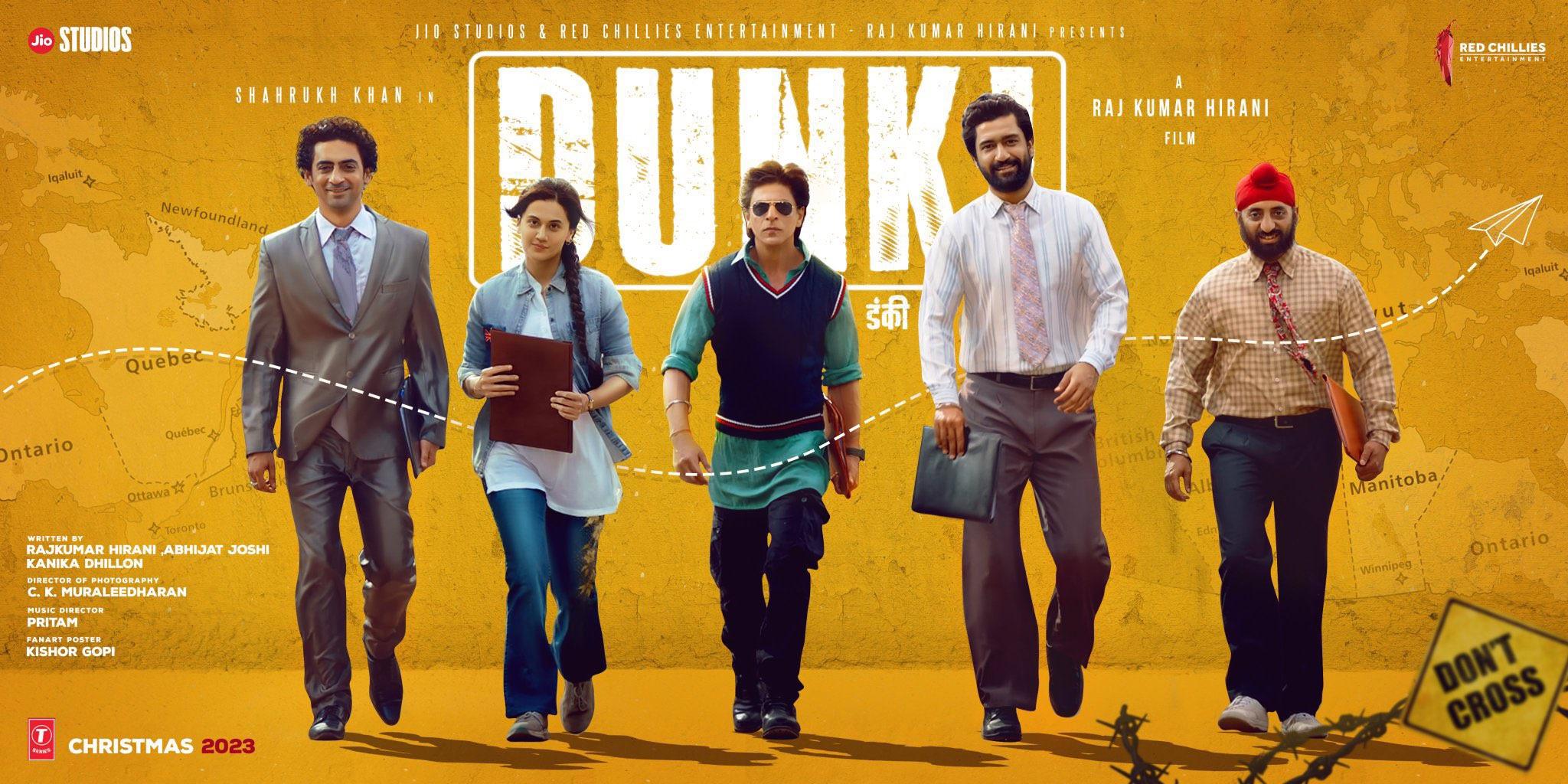Whenever Indian cinephiles are asked about their favourite Shah Rukh Khan performance, most wonder about his pre-DDLJ performances perhaps because the superstar habits that we all know and love today are secondary in their hearts than his unabashed theatrical acting prowess.
Sure, most of them are entertained by Rahul Raichand and Aman never fails to make viewers cry and laugh at once. Veer Pratap Singh is indeed etched in the Indian filmgoer’s mind forever, and we still think Pathaan and Jawaan served us the sensation of Shah Rukh Khan like never before.
But the Shah Rukh of Darr and Kabhi Haan Kabhi Naa stands the test of time because he steals the show not with the intent of superstardom but with the ardent conviction of the story he is bringing to life. So, when one of the most awaited collaborations of the last few years – Dunki – promised us the triumph of human resilience and endeavour with a slice of life, we were bound to expect an abundance of feeling.
Immigrant narratives deserve more depth in Dunki
Dunki tries hard to do that but falters in the simplest of things, which serves as a foundation – the premise. The donkey route of illegal immigration that upon which the Dunki’s core premise rests, is very much real but the scope of the film’s ambition rings artificial.
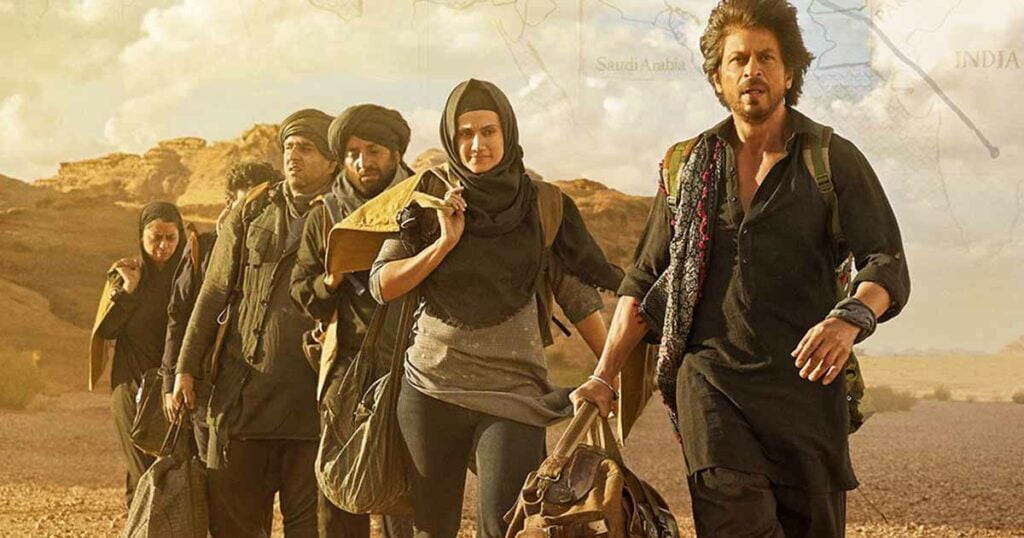
In 1995, when we see three friends in a small village in Punjab risk everything to immigrate to the mystical and promising wonders of a better life in the UK, Dunki never, completely convinced us of why they would risk it all.
For instance, Manu (Taapsee Pannu), Buggy (Vikram Kochhar), and Balli (Anil Grover) are essentially defeated by the lack of employment and prosperity, which burdens their ageing and ailing parents. While they all have means of livelihood in dhabas and barbershops, they desire social mobility and it is this aspiration that underpins most immigrant narratives.
Why does the writing team of Rajkumar Hirani, Abhijat Joshi, and Kanika Dhillon, neglect to highlight any political and cultural realities that draw these youngsters to foreign countries, when hustling within a land where they speak the language and know the tricks of survival would be that much more accessible and convenient?
Think The Namesake, even SRK’s claim to fame in DDLJ, or the most recent and evocative Past Lives – the immigrant torn between the only land they know and belong to and the world they dream of in the myth of distant countries is a powerful characterisation. But considering these people have never even ventured out of Laltu, why won’t they travel to the city of dreams, Mumbai or closer home to Delhi to make something of themselves? This is the post-liberalisation India of 1995 after all.
So, why does the writing team of Rajkumar Hirani, Abhijat Joshi, and Kanika Dhillon, neglect to highlight any political and cultural realities that draw these youngsters to foreign countries, when hustling within a land where they speak the language and know the tricks of survival would be that much more accessible and convenient?
Vicky Kaushal’s Sukhi is the stuff of wonders in Dunki
When the stakes are as high as walking underwater with pipes to keep breathing and being shot at in foreign deserts, the audience needs to be invested with the utmost depth in the stories of these people. The one character who is accorded that conviction in his narrative is Sukhi, played by an unfaltering and memorable Vicky Kaushal. Desperate to rescue his ex-fiance who was married off to an abusive NRI husband, Sukhi’s helplessness and impulse to reach London against all odds transcend the frame with gut-wrenching intensity.
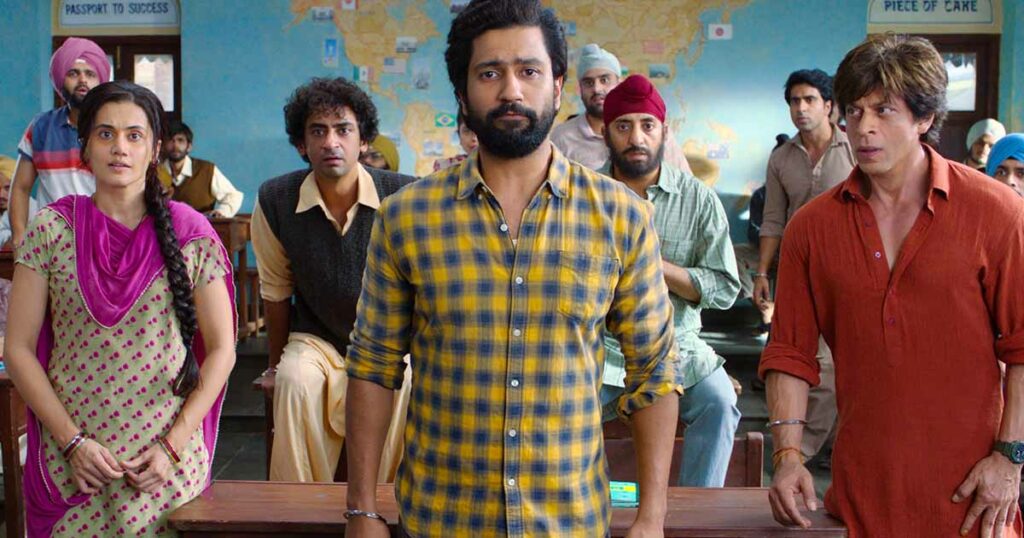
Kaushal has the rare ability to not merely perform but become the character he is on screen. His eyes convey the longing and his body language carries the lethargic frustration of mind-numbing bureaucracy, which endangers the life of his beloved. This is the only real tragedy of life in Dunki where laughter is used almost like a crutch as if the filmmakers are afraid of vulnerability boring their audience.
In a scene in the classroom where these youngsters are preparing for IELTS, Sukhi erupts – flabbergasted at the humorous attitude of his classmates when his life is hanging by a thread. Kaushal brings everything he has got and more to this cameo, making one grateful for the sheer privilege of watching him on the big screen.
Enjoyable performances plagued by poor characterisation
The rest of the cast is perfectly enjoyable as well, with Taapsee Pannu leading the charge in a role drawing from its feistiness from her previously acclaimed performance as Rumi in Manmarziyaan. As Manu, she looks comfortable and believable at once, bringing the audience at ease with her and making it feel almost obvious why she is the love interest of SRK’s Hardy. Kochhar and Grover shine through their comedic timing and the perplexity of their body language, particularly in their IELTS interview scene.
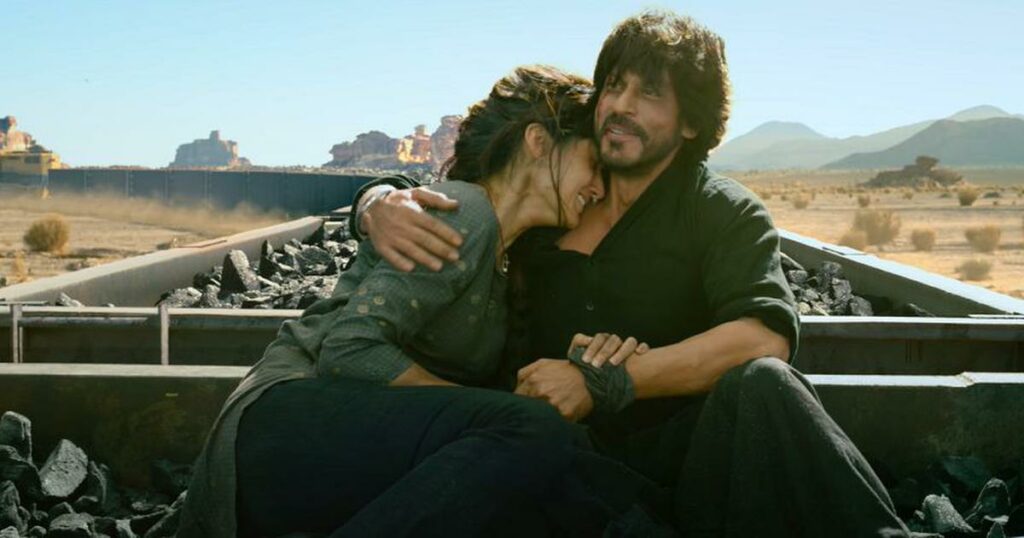
However, Shah Rukh’s Hardy is the other weak link here. While the rest of the cast appears at ease, the forced and stereotypical accent as well as the airbrushed appearance make Hardy look young and turn his presence jarring. And unlike Kal Ho Naa Ho’s guardian angel in Aman whose sole purpose was to make Naina feel loved and cherished, Hardy’s omnipotent saviour arc does not land.
While Aman was built into pathos, the audience comes out knowing seldom anything more about Hardy that the trailers didn’t share, despite spending nearly three hours with him. What drives this soldier to sacrifice his beloved beyond the superficial sense of national pride? Dunki is not interested in sharing this crucial detail of his narrative, his personhood, with us.
In a film about the dehumanisation of people based on nationalities and its tragic implications, such shallow representation jars in a cringe fashion.
It’s also this superficiality that takes the undoing up a notch. The only (or perhaps the most) violent and dehumanised character in Dunki is an Iranian soldier, who shoots at immigrants merely for amusement. People from other ethnicities are parodied through humour, but the Iranian encounter is akin to the savagery that is often attributed to Muslim men for their large-scale dehumanisation. In a film about the dehumanisation of people based on nationalities and its tragic implications, such shallow representation jars in a cringe fashion.
Romance saves the day in true SRK fashion
When all is said and done, it is this formulaic filmmaking that harms this saga with immense potential. This is evident in the moments of romance where Shah steals the show with his tenderness that sweeps you off your feet. Be it the first time Manu stands up for him or the homage to Rab Ne Bana di Jodi in a scene at the Gurudwara, SRK’s look of love as he falls for the woman of his dreams is the stuff that elevates our collective cinema-going experiences.
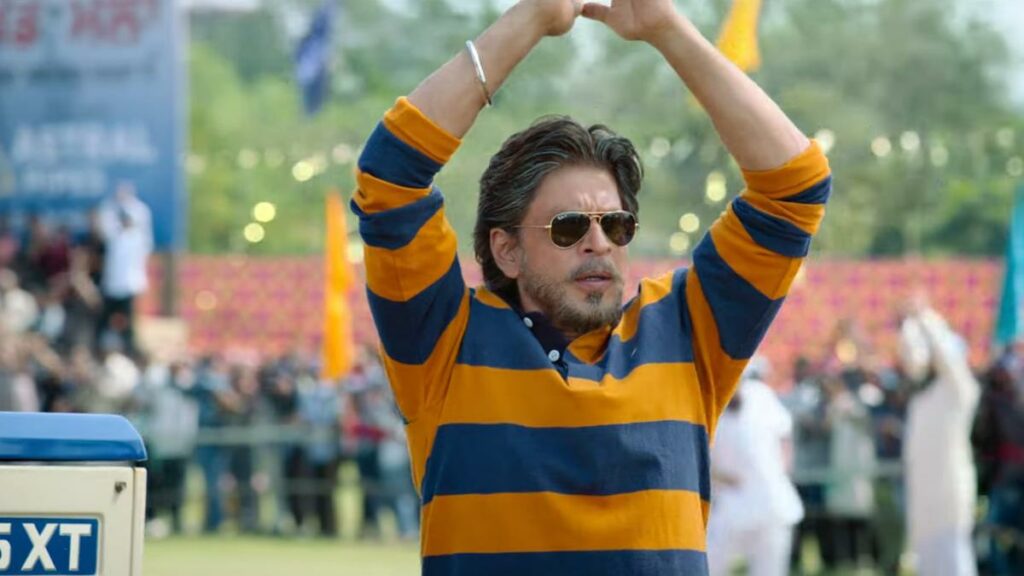
Pritam’s music, especially the catchy and warm Lutt Putt Gaya, brings the swooning romance of a tender and blushing Shah Rukh back to our screens. It is these moments of comfortable heart that live long after the credits roll.
The tenderness is well-intended, especially at a time when expressions of violent and derogatory masculinity rule the box office. SRK’s Hardy cries, feels, loves, and laughs — his vulnerability is his language of love, for Manu and for the fans who have loved him ever since he first spread his arms on screen decades ago.
